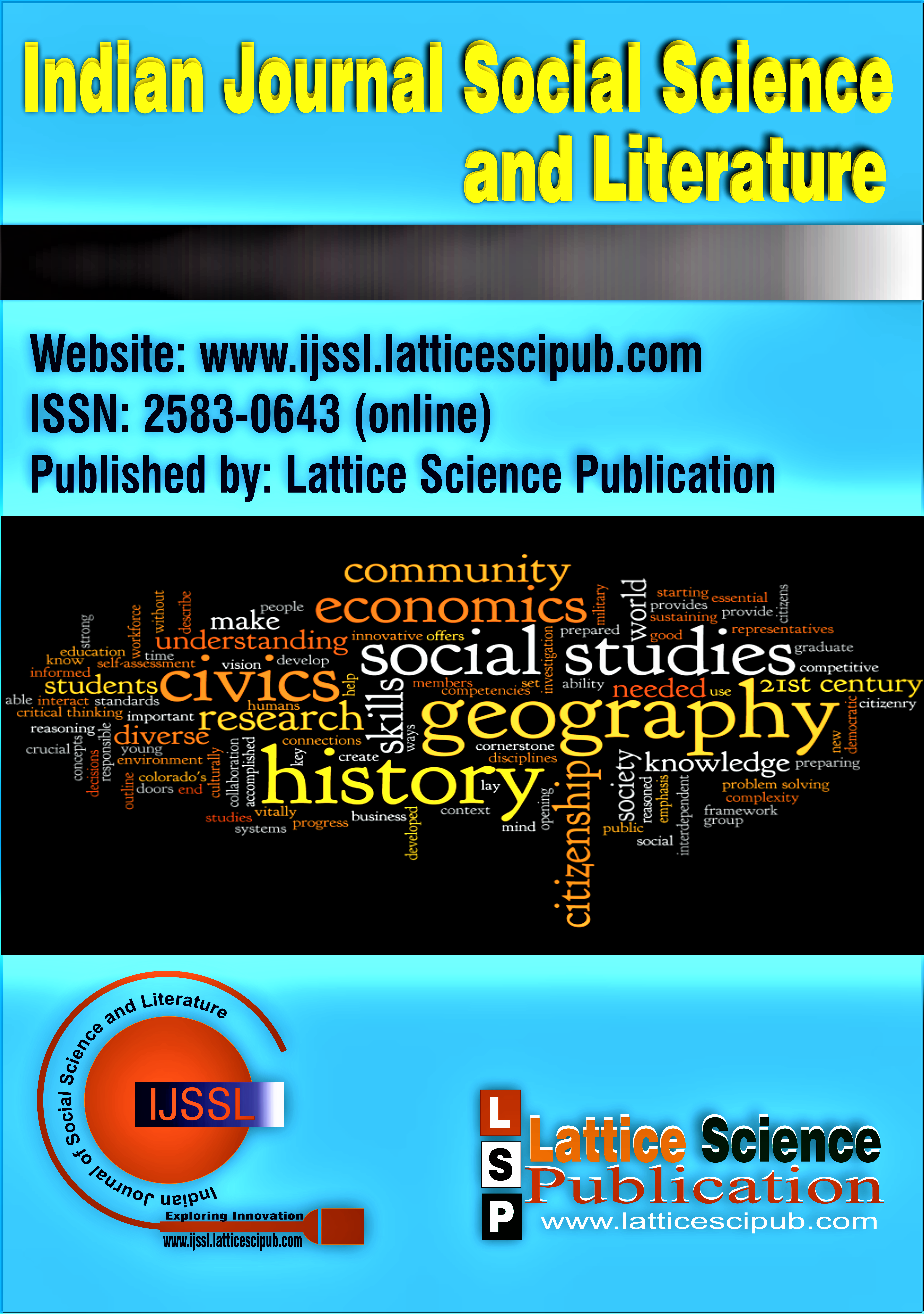Promoting Subjective Well-being: Essential in leading to Up-gradation of one’s Living Conditions
Main Article Content
Abstract
Promoting subjective well-being is important for all individuals, belonging to all communities, categories and socio economic backgrounds. The senior citizens are required to be well versed in terms of all types of methods and strategies, which are facilitating in promoting subjective well-being. The individuals in old age are required to be well-equipped in terms of different techniques, which would be facilitating in generating desired outcomes. The elderly individuals are required to form cordial and amiable terms and relationships with other individuals. The family and community members are required to make provision of support and assistance to elderly individuals. The reason being, in old age, individuals experience decline in capabilities and aptitude, hence, they are required to communicate and take help from others in promoting enhancement of their overall standards of living. One of the important aspects that needs to be taken into account is, in old age, individuals need to promote a normal mind set. This will be facilitating in leading to up-gradation of different types of skills and abilities. As a consequence, analytical, criticalthinking and problem-solving skills will be put into operation in an appropriate manner. Therefore, promoting subjective well being is essential in leading to up-gradation of one’s living conditions. The main concepts that are taken into account in this research paper are, understanding the meaning and significance of subjective well-being, measures to be implemented in promoting subjective well-being and impediments encountered by senior citizens in promoting subjective well-being.
Downloads
Article Details

This work is licensed under a Creative Commons Attribution-NonCommercial-NoDerivatives 4.0 International License.
How to Cite
References
Chapter IV. (n.d.). Problems of the Aged People in India: An Analysis. Retrieved September 09, 2023 from
https://shodhganga.inflibnet.ac.in/bitstream/10603/95236/11/11_chapter%206.pdf
Kaur, H., Kaur, H., & Venkateashan, M. (2015). Factors Determining Family Support and Quality of Life of Elderly Population. International
Journal of Medical Science and Public Health, 4(8), 1049-1053. Retrieved September 09, 2023 from https://www.ejmanager.com/mnstemps/67/67-1421835325.pdf
Pietrangelo, A., & Watson, S. (2017). The Effects of Stress on Your Body. Retrieved September 09, 2023 from healthline.com
Preventing Illness and Disease. (n.d.). Retrieved September 09, 2023 from familyeducation.com
Proficiency Levels for Leadership Competencies. (n.d.). Retrieved October 10, 2023 from opm.gov
Victorovna*, F. E., Mikhailovna, R. T., & Vladimirovna, R. O. (2019). Socio-Cultural Background of Family: Opportunities and Limitations
for Schoolchild Personal Development. In International Journal of Recent Technology and Engineering (IJRTE) (Vol. 8, Issue 3, pp. 5246–
. https://doi.org/10.35940/ijrte.c5902.098319
Andarini, N. T., & Purwadi. (2020). The Role of Parents’ Social Support and SelfEfficacy towards Academic Stress. In International Journal of
Management and Humanities (Vol. 4, Issue 11, pp. 1–6). https://doi.org/10.35940/ijmh.g0659.0741120
Zuardin*, Razak, A., Maidin, M. A., Tamar, M., & Yani, A. (2019). Patterns of Family Support in Cervical Cancer Survivors with High Resilience. In International Journal of Innovative Technology and Exploring Engineering (Vol. 9, Issue 1, pp. 1604–1606). https://doi.org/10.35940/ijitee.a4572.119119





